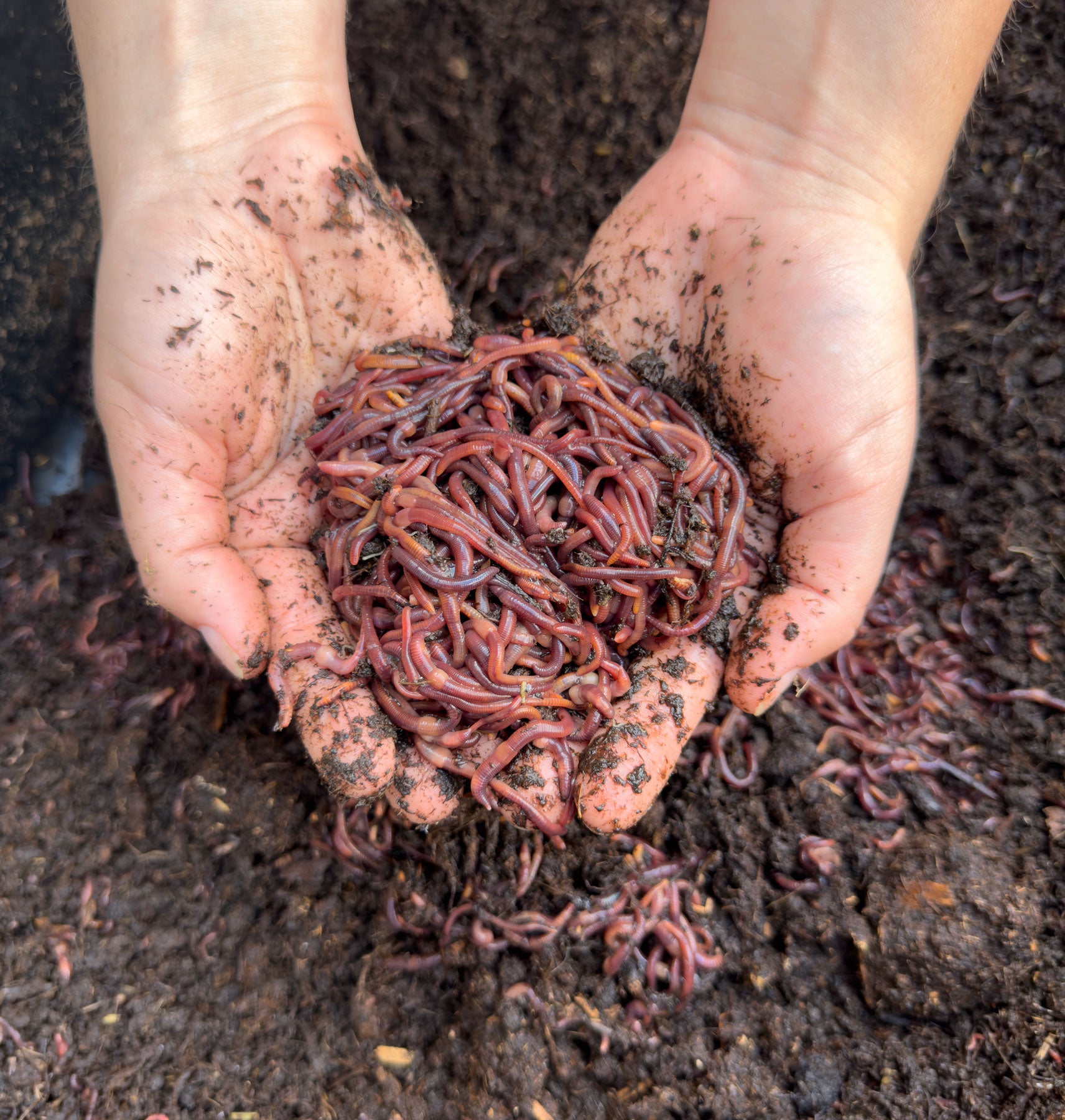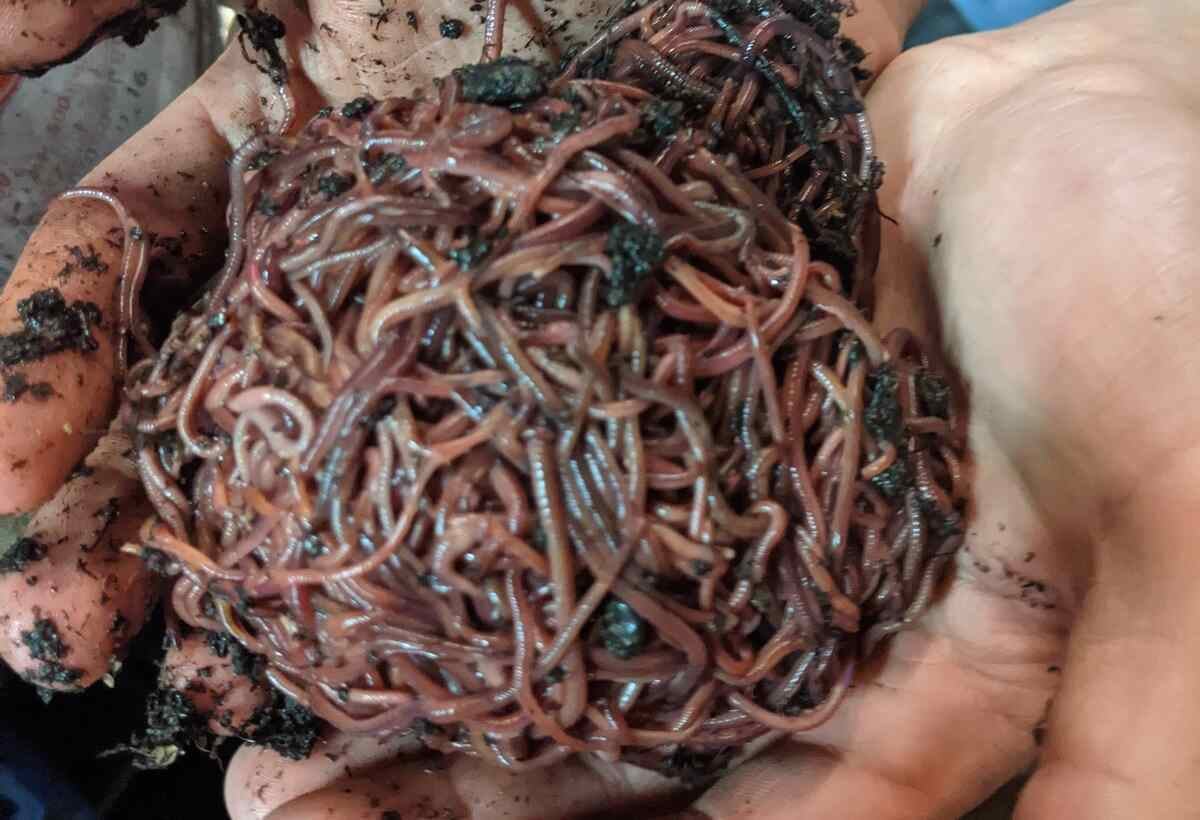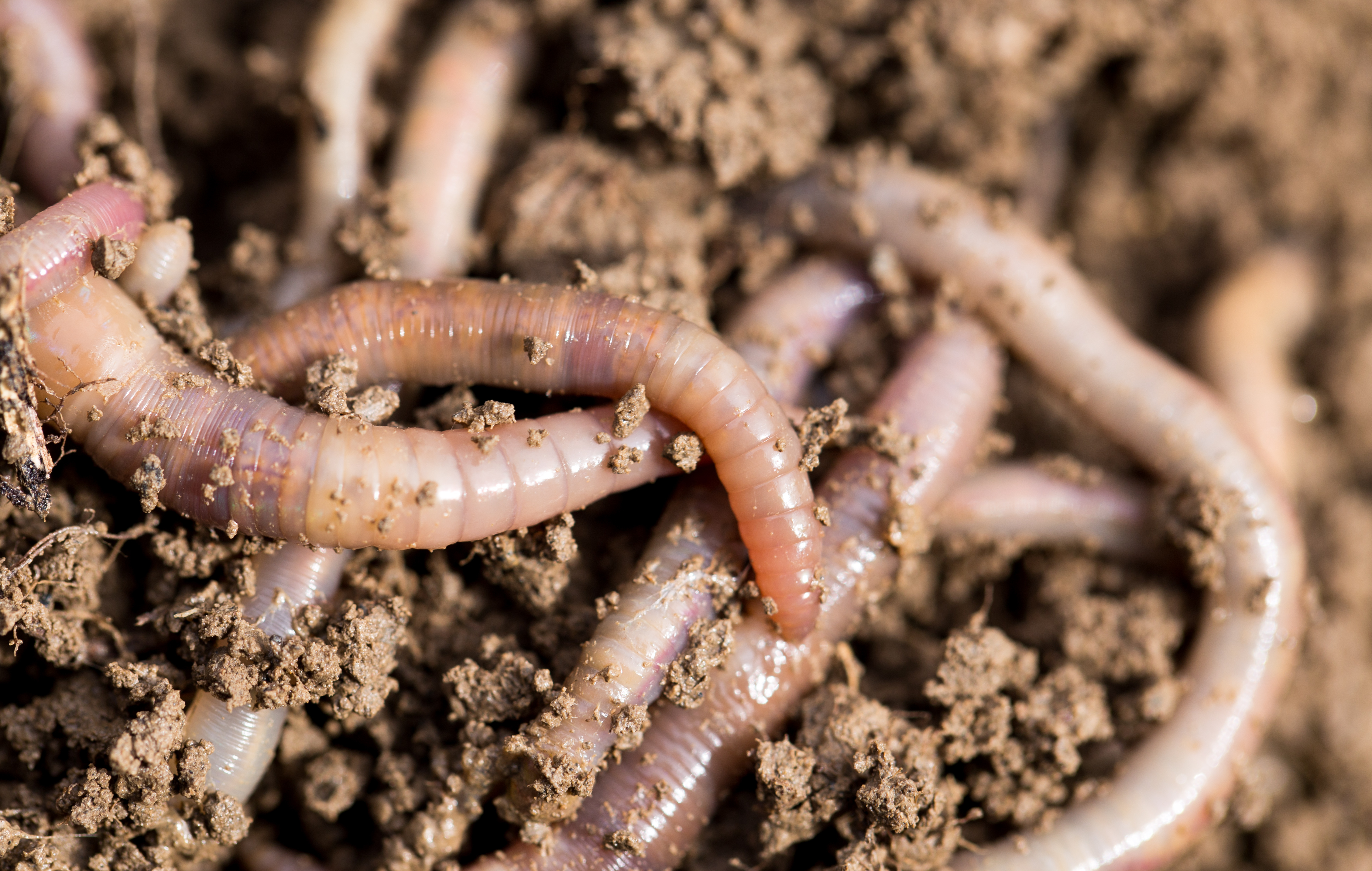Red Wiggler Worms - Enhance Your Dirt Wellness Naturally
Red Wiggler Worms - Enhance Your Dirt Wellness Naturally
Blog Article
Red Wiggler Worms Demystified: Unlocking the Secrets of Vermiculture for Greener Living and Nutrient-Rich Soil
In the world of lasting practices for enhancing dirt quality and advertising eco-conscious living, red wiggler worms play a critical yet commonly neglected duty. Red Wiggler Worms. Comprehending the details of caring for these worms, maximizing their atmosphere, and harnessing their spreadings can lead to a greener way of living and healthier dirt for plants to flourish.
The Duty of Red Wiggler Worms
Red Wiggler worms play an important duty in composting systems by efficiently breaking down raw material right into nutrient-rich castings. These starved eaters eat a variety of organic materials, such as kitchen area scraps, lawn waste, and paper products. As they feed, the worms' digestive processes break down the raw material right into a fine, dark, and nutrient-dense material understood as worm spreadings or vermicompost.
The spreadings created by Red Wiggler worms are highly helpful for dirt health and plant growth. They are abundant in essential nutrients like potassium, phosphorus, and nitrogen, which are vital for sustaining healthy and balanced plant growth. In addition, worm spreadings contain useful microorganisms and enzymes that assist boost dirt structure, boost water retention, and boost nutrient uptake by plants.
Advantages of Vermicomposting

It improves dirt structure, enhances dirt oygenation, and enhances soil dampness retention. Vermicompost additionally enriches the soil with necessary nutrients like potassium, nitrogen, and phosphorus, advertising plant growth and general soil fertility.
In addition, vermicomposting assistances sustainable gardening methods by giving a natural and chemical-free alternative to synthetic fertilizers. Red Wiggler Worms. This ecologically pleasant strategy not just improves the dirt but likewise assists lower dependence on harmful chemicals, promoting a greener and much more lasting means of gardening
Establishing a Worm Container
When developing a worm container for vermicomposting, proper configuration is crucial to guarantee the success of the composting process. The primary step in establishing a worm bin is choosing an appropriate container. This can be a plastic bin or wooden box that gives adequate room for the worms to walk around and has correct water drainage holes to stop waterlogging. Next, a bedding material such as shredded paper, cardboard, or coconut coir need to be contributed to the bin. This bedding provides a comfy setting for the worms and assists preserve moisture levels.
After including the bed linen, present the red wiggler worms to the bin. The worms should after that be offered with food scraps such as fruit and veggie peels, coffee grounds, and eggshells.
On a regular basis keep an eye on the moisture degrees and temperature in the worm container to guarantee optimal problems for the worms. With appropriate arrangement and maintenance, the worm container will successfully transform natural waste right into nutrient-rich garden compost for your plants and garden.
Gathering Worm Castings
To efficiently collect nutrient-rich worm castings from your vermicomposting system, a systematic harvesting approach is vital. When it comes time to harvest the worm spreadings, there are a couple of essential steps to comply with to ensure a successful procedure. Quit including fresh food scraps to one side of the worm bin for a pair of weeks before gathering. This encourages the worms to migrate sideways with fresh bed linens and food, making it simpler to scoop out the spreadings from the opposite.

Troubleshooting Common Issues
Determining and resolving usual obstacles that might emerge during the vermicomposting procedure is essential for maintaining a productive and healthy and balanced worm container. One common concern that vermicomposters encounter is overfeeding. Adding excess food scraps can lead to a build-up of moisture and acidity in the worm bin, potentially hurting the worms. To avoid this, feed the worms in small amounts, ensuring that the food scraps are effectively damaged down before adding more. Another concern is useful site undesirable odors originating from the worm container. Foul scents show anaerobic conditions, typically brought on by overwatering or poor air flow. To treat this, adjust the wetness degrees by including dry bedding materials like shredded paper or cardboard and increase oygenation by turning the bed linens routinely.
Additionally, if the worm populace is declining or the worms show up unhealthy, maybe due to environmental stressors such as severe temperatures or pH levels. Keeping track of these factors and making needed adjustments is vital for the well-being of the worms. By repairing these typical problems without delay, vermicomposters can make sure a effective and smooth vermicomposting process while Bonuses preserving a thriving worm population.

Final Thought
Finally, red wiggler worms play a crucial role in vermiculture by breaking down raw material right into nutrient-rich dirt. The advantages of vermiculture consist of greener living and boosted dirt high quality. Setting up a worm bin is important for successful vermiculture, and harvesting worm spreadings provides beneficial garden compost for horticulture. By comprehending and troubleshooting common issues, people can open the tricks of vermiculture for sustainable living and much healthier dirt.
As they feed, the worms' digestive procedures damage down the organic matter right into a fine, dark, and nutrient-dense product recognized as worm castings or vermicompost.
The spreadings produced by Red Wiggler worms are highly beneficial for dirt health and wellness and plant growth. Including excess food scraps can lead to a buildup of wetness and acidity in the worm container, potentially hurting the worms.Additionally, if the worm populace is declining or the worms show up undesirable, it might be due to environmental stress factors such as extreme temperature levels or pH levels. Establishing up a click site worm bin is vital for successful vermiculture, and gathering worm spreadings offers valuable compost for horticulture.
Report this page